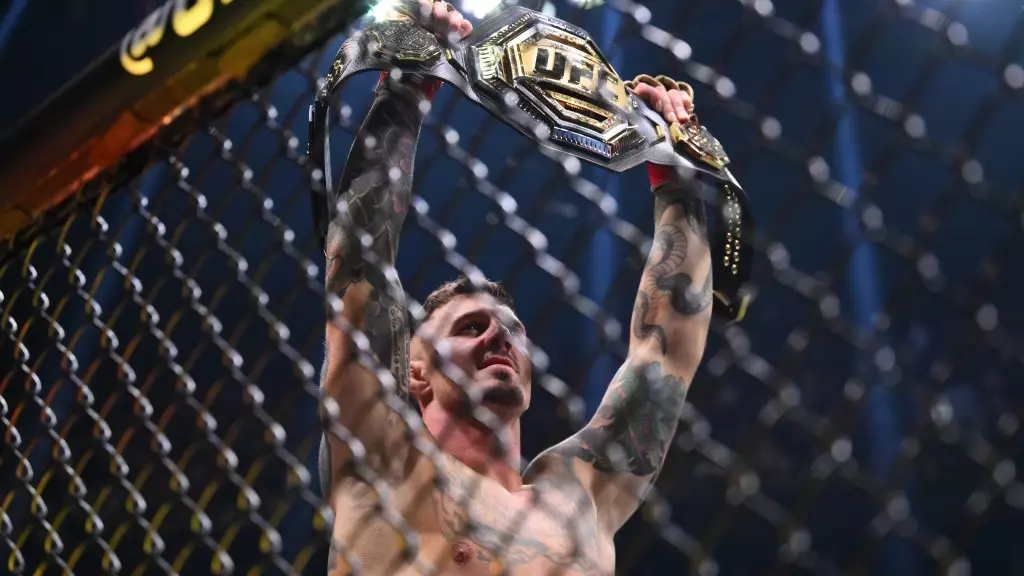As UFC enthusiasts eagerly anticipate Jon Jones defending his heavyweight title against Stipe Miocic at UFC 309, conversations surrounding the legitimacy of his reign and his overall legacy are heating up. In particular, Alexander Volkanovski, the featherweight champion, has reignited a critical debate about whether Jones should consider a fight with interim heavyweight champion Tom Aspinall. Volkanovski’s opinion prompts a closer examination of what constitutes a legitimate heavyweight champion in today’s mixed martial arts scene.
Jon Jones stands at a career-defining juncture, boasting a record of 27-1 and a reputation that arguably positions him as one of the greatest fighters in MMA history. With a successful title defense against Miocic looming, Jones has dismissed the idea of unifying titles against Aspinall, which many perceive as a significant oversight. His confidence comes not merely from his accomplishments but from the fact that he currently holds a heavyweight title won against Ciryl Gane for a vacant belt. Nonetheless, Volkanovski emphasizes that to truly solidify his standing as a heavyweight champion, Jones must face formidable challengers, stating, “You can’t be a true champ if you avoid the biggest threats.”
Aspinall’s rise within the heavyweight division has been marked by impressive athleticism and versatile fighting skills, making him a serious contender and the currently recognized interim champion. Volkanovski highlights Aspinall’s unique capabilities, saying he represents “the biggest threat” to Jones. This reality complicates Jones’ narrative; it is one thing to claim the heavyweight belt but quite another to defend it against credible opponents. According to Volkanovski, a victory over Aspinall would add clarity and authenticity to Jones’ legacy—a claim that resonates deeply among diehard fans of the sport.
Interestingly, the suggestion that Jon Jones may be more interested in pursuing a fight with current UFC light heavyweight champion Alex Pereira complicates matters. Volkanovski acknowledges that while such a fight may provide more financial incentive, it risks sidestepping the more critical challenge posed by Aspinall. The pursuit of “bigger fights” could distract Jones from cementing a sincere legacy within the heavyweight division. By choosing money or marquee matchups over competitive integrity, Jones risks leaving questions around his championship reign unanswered.
As the discussion unfolds surrounding Jon Jones and his potential challengers, Volkanovski’s insights amplify a critical perspective: legacy in fighting is nuanced and multifaceted. While financial gains and high-profile names play significant roles in a fighter’s choices, the essence of true championship in the UFC often rests on the willingness to take on the biggest threats. For Jon Jones, a showdown with Tom Aspinall could serve not only as a pivotal moment for his legacy but also as a definitive statement in the heavyweight division. Whether he chooses to accept that challenge remains an open question—one that could redefine his standing in the sport forever.

